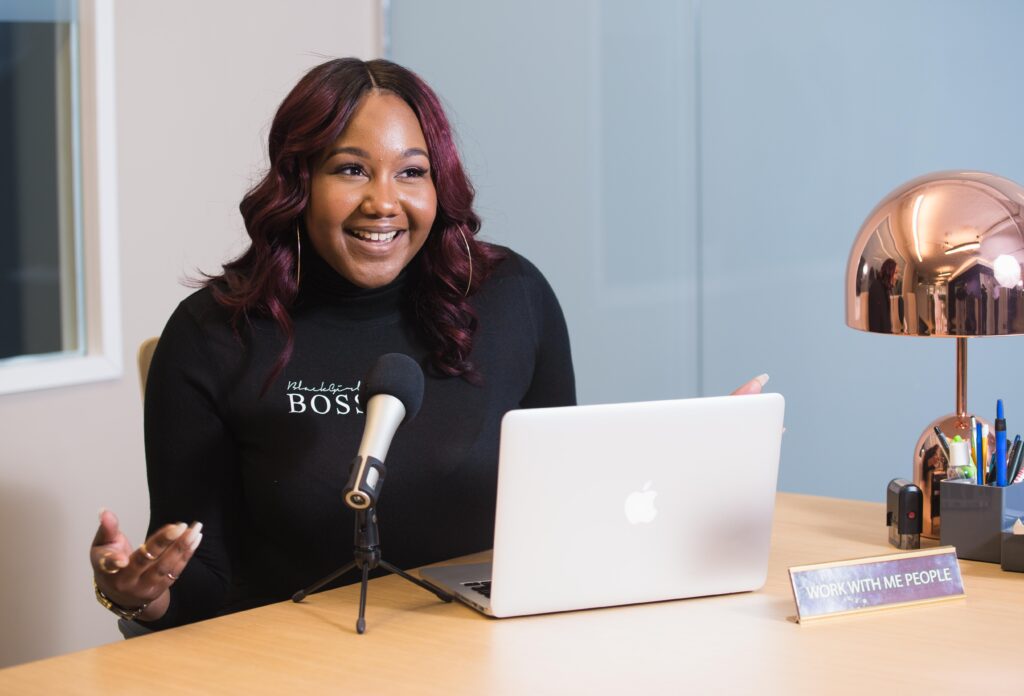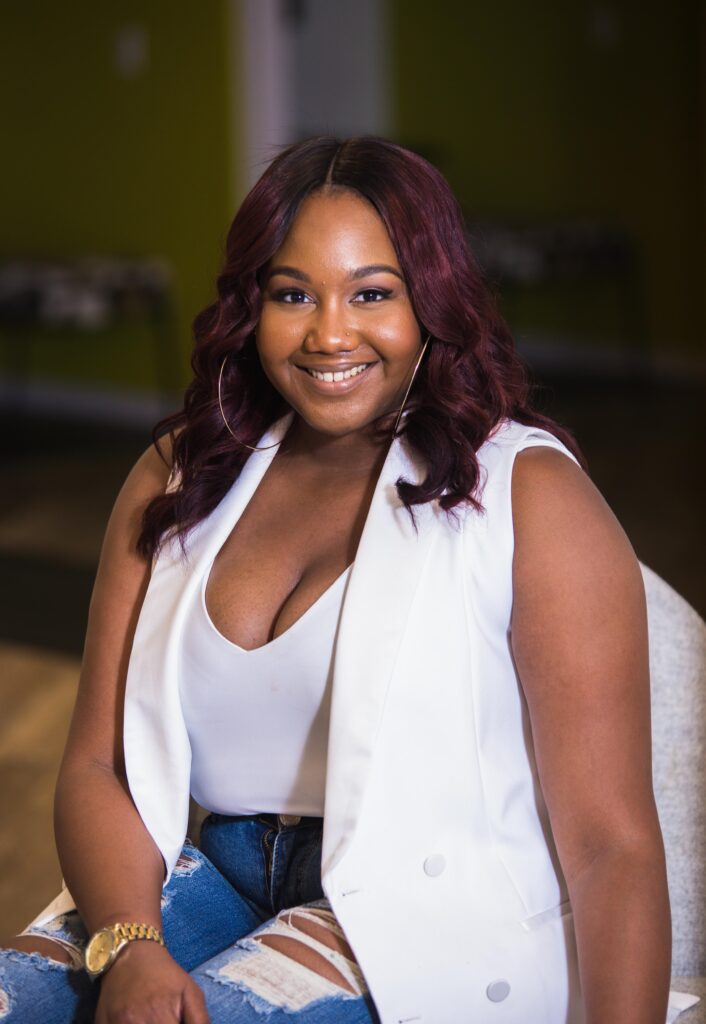With podcasting projected to be a billion-dollar industry by 2021, there is money to be made and Anchored Media can help you cash in. In its prelaunch, Anchored Media produced shows like “Blessed and Bossed Up” which reaches 200,000 people monthly and the “Fashionpreneur Diaries” which ranked as a top 40 apple podcast last month.
After over four years in podcasting, the executive producer of Anchored Media, Tatum Temia Ayomike, has found that new, aspiring, and existing podcasters fail to create monetizable shows.
“The main roadblocks people have when it comes to their podcast is not being at a monetizable place. That either comes from not having enough listeners for advertisers to buy in or not having a clear strategy in place to convert the listeners they do have into income for their business. That’s what Anchored Media comes in to do. We solve those two problems for the show.”

Built on the foundation of Christ, Anchored Media is a platform that assists other believers in creating podcasts in various industries. Tatum, who developed a six-figure business through podcasting, graciously shared a few Anchored Media strategies every podcaster should consider.

1. Build a show for your audience, not just for you.
“A lot of people make shows based on their desires. That might be a show that you like, but that’s not a show that’s going to reach the masses. Create with your audience in mind.
Send out surveys. Ask people what they want and give it to them. Do a competitor analysis. Pay attention to what similar podcasts are doing that are successful.
Because my show [Blessed and Bossed Up] is a faith-based show, my message always comes from God, but the way I deliver my message will be in a way that is able to be digested by my target audience.”

2. Learn and review your metadata.
“A lot of people don’t understand the importance of metadata or ID3 tags which is essentially the SEO for podcasting. People underestimate the importance of how they write their show notes or how they title their podcasts. These very subtle things are very effective and have allowed us to really reach the people who are looking for us.
A show we worked on called “The Refill” is about self-care. Self-care is extremely saturated and isn’t something that will make people click on the podcast. I worked with the host to never say the word ‘self-care.’ Since she has a mental health counseling background, she’s very well versed in teaching people to care for themselves for real, and we wanted to highlight that. We named the show “The Refill” because that’s what she’s teaching people how to do, and she’s targeting people who are always pouring out.”

3. Position your show for success by developing a unique proposition.
“A lot of people are so quick to launch that they overlook fleshing out the idea of what they’re doing. They may be in a category that they get lost in as opposed to being strategic so they stand out.
A show we developed, The Fashionpreneur Diaries, is about the fashion industry, but it’s from the business perspective. A lot of fashion podcasts talk about fashion but we have a show that talks about being successful in the industry. We also added a video to the podcast because fashion has to be seen. We made the adjustments necessary to stand out.”
4. When looking to grow, focus on marketing.
“Most people starting podcasts are not influencers. I started as a regular person. To reach the numbers we have without influence and without having an interview-based show, it’s been very solid marketing and great content that got us to this point.
I have a list of marketing strategies, and I’m constantly coming up with new strategies for growth. I’ll apply one to two strategies a month. If we see a significant jump, then I know it’s working. Marketing is all about testing various strategies and doing more of what works and less of what doesn’t.”

5. Consider monetizing in more than one way.
“We monetize two ways, through advertising and by funneling people into our existing business. Advertisers look for about 10,000 listens per episode. There are companies out there like Midroll.com and Advertise Cast who connect podcasters to advertisers. We work with a team who secures sponsors for us. We also secure our own sponsors by reaching out to brands who are already spending money on podcast ads with our type of content.
The second way we monetize, which I would argue is the best way is by funneling people into our business. When you do this, you’re able to sell to the same person over and over. Instead of one advertiser check, I can get five checks from Suzy who listens to the show in Milwaukee, because she’s bought my book, my journal, she’s come to the tour, a retreat, and now we’re working with her on her podcast.”

With such a powerful pre-launch track record, Anchored Media is officially open to anyone with a podcast or potential idea. Join Tatum for the upcoming Open House on April 2, 2020.

